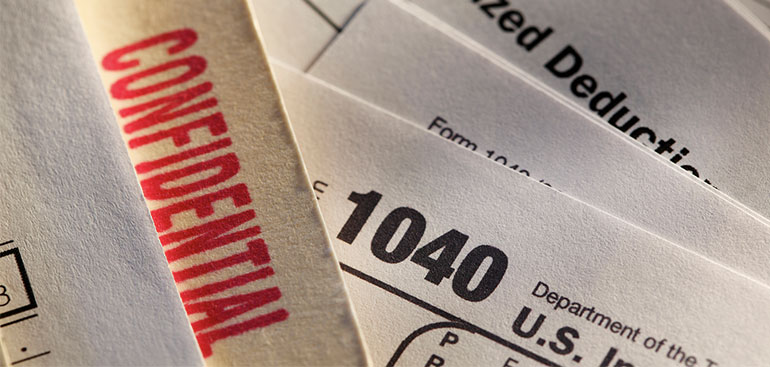Henry A. Hoss, CPA, Kirk H. Low, CPA. Tennessee CPA Journal. October 2003.
The Streamlined Sales Tax Law that passed during the closing days of the last session of the Tennessee Legislature and the new senior staff of the Tennessee Department of Revenue (TDOR) were the main topics at the recent TSCPA State Tax Liaison meeting held on Aug. 1, 2003.
Commissioner Loren Chumley said that since taking office in January, there has been a whirlwind of activity at the TDOR. During the legislative session, the emphasis was in minimizing the effect of the across-the-board budget cuts. After the end of the session, the commissioner embarked on a statewide listening tour.
The three years of work on the part of 37 states to simplify sales and use tax under the name “Streamlined Sales Tax Project” is, according to Commissioner Chumley, an effort to simplify and make more uniform the sales tax laws that exist in 45 states and the District of Columbia, with a view toward ultimately convincing either the courts or Congress to require remote sellers to collect and remit sales tax to the states. With 57 percent of Tennessee’s revenue coming from sales and use tax, the commissioner said this was most important to Tennessee. When asked about some of the changes that have to be made to Tennessee sales tax laws to achieve uniformity, the commissioner said, “We have to weigh overcoming 60 years of complexity against the loss of the tax base due to electronic commerce.”
There was concern from the committee that Congress may not pass the needed legislation. The commissioner replied, “Congress acting will make it mandatory.” However, under the current voluntary system, national scale retailers are beginning to comply by collecting and remitting taxes on e-commerce sales for business and marketing reasons and to show support for the streamlined initiative.
On a national level, streamlined legislation has been adopted by the minimum of 10 states with 20 percent of the population. The next step is for the states that have passed legislation to form a governing board that will certify that states comply with the requirements of the streamlined project. Commissioner Chumley expected this would happen in November.
For example, Texas and Washington have failed to adopt the destination sourcing provisions and may not be certified as in compliance. Several business groups are watching the governing board that decides if a state complies with the streamlined provisions. In a volunteer system, sellers who are voluntarily collecting sales taxes for a participating state that is found to be no longer in compliance may decide to stop collecting taxes for the expelled state.
For Tennessee, the following had to be reconciled to the streamlined uniform definitions and concepts:
- the current 19 tax rates had to be dealt with in some way in order to comply with the agreement’s simplified rate structure requirements;
- the differing tax bases had to be changed so that if a sale is subject to state sales ta x, it must be subject to local sales tax; and
- destination sourcing.
Currently, Tennessee uses origin sourcing to calculate sales tax. For example, office supplies from Murfreesboro dealers delivered to Nashville are taxed at the higher Rutherford County rate, and Rutherford County gets the tax revenue. Under the streamlined agreement, clothes shipped from Cool Springs Mall in Franklin to Murfreesboro will use the Murfreesboro city rate, and Murfreesboro gets the tax revenue. The commissioner said 14 notices to industries on sourcing were in the draft stages.
The legislature made the choice to leave common carriers and aviation at lower rates. Common carriers will get a self-pay permit that will allow them to report at a special rate. These are two examples of what will become “privilege taxes” instead of sales and use taxes to protect reduced rates. A practitioner asked about credit for paying tax in another state on tangible personal property that will become subject to a privilege tax. For example, if aviation fuel is purchased in Kentucky and tax is paid to Kentucky, will the Tennessee taxpayer receive credit for the Kentucky taxes paid against the Tennessee tax due if the aviation fuel is brought into Tennessee for use? At this time, it appears this question is unanswered by the streamlined provisions.
Business interests have pushed the National Conference of State Legislators to make the cost of compliance with streamlined provisions minimal. The current streamlined provisions require vendor compensation for non-nexus reporters of sales tax. The commissioner mentioned that this might bring a return of vendor’s compensation to Tennessee’s sales and use tax system.
Also mentioned was that PriceWaterhouseCoopers was retained for a study on the costs of collection.
A simplified audit process under the Streamlined Sales Tax Law is being developed. Several states may audit the vendor at the same time.
Tennessee taxpayers will have four choices in complying with the stream lined tax provisions as follows:
- Model 1 has a certified service provider, compensated by the states, providing all of the seller’s sales tax functions, and the use tax is reported separately;
- Model 2 has the seller using a certified automated system to perform only tax calculation function, and the seller reports and remits on its own,
- Model 3 has the seller using propriety software certified by the states collectively to calculate the tax due, and the seller reports and remits on its own; or
- continue to report without the use of special software.
The fourth option will be the choice of many smaller Tennessee taxpayers who do not ship to other counties or states on a regular basis. The commissioner said that the “mom and pop” vendor would only see a different form.
Implementation by the TDOR includes the following:
- A policy team is going through the new law and the streamlined provisions
- Privilege tax forms are being created
- Sales tax forms are being changed
- An education program is being developed
There will be one return per state. Therefore, Tennessee’s location-based filing system will have to be changed.
The commissioner said the U.S. Senate was marking up the Internet Tax Freedom Bill that deals with Internet access. Tennessee was grandfathered out of the current bill and has been able to tax access charges. The U.S. House has voted to extend the Internet Tax Freedom Act, but remove the grandfathered states. According to the commissioner, this would cause a reduction of about $18,000,000 in revenues from the telecommunications tax.
Reagan Farr, assistant commissioner, announced that the sales and use tax return could now be filed online. By filing using the Internet, the return is automatically loaded into RITS (the TDOR’s computer system), reducing keypunch errors. Mr. Farr encouraged the use of ACH payments and said a system to use credit cards was being considered. Legislation must be introduced next year to allow the use of credit cards.
Members of the committee suggested a system for filing Hall Income Tax returns electronically, using tax preparation software. Beginning Jan. 1, 2004, taxpayers consistently liable for more than $10,000 per month in sales and use tax who in the past must have paid in readily available funds must file electronically. The penalty is $500 for each instance not paid electronically. The TDOR is sending instructions to the 4,500 entities identified that will need to comply with this change.
Mr. Farr also discussed the change in the safe harbor for franchise and excise tax estimated payments to the lesser of 25 percent of the prior year per payment or 25 percent of the current year’s tax. A notice discussing this change is on the TDOR’s Web site.
The headquarters creditor sales tax has ended, according to Mr. Farr. The new statute, effective July 1, 2003, requires expenditures of $50 million in a headquarters facility or an investment of $20 million with the creation of 200 new jobs at an average wage, double the higher of the county or metropolitan statistical area average wage used for a minimum of ten years. The credits effectively lowers the tax to the local option tax on “qualified tangible personal property” used in the headquarters facility.
Mr. Farr said the loophole for banks has been closed, and the TDOR expects banks to report investment subsidiaries on their 2003 returns. The effective date is Jan. 1, 2003. Therefore, subsidiaries in existence any time after Jan. 1, 2003, must be shown on the return.
The ruling in the Exxon case that the TDOR was in error in deciding that one of the largest businesses in the world was inadequately capitalized was discussed at length. Mr. Farr said the case may be appealed, but a decision has not been made on how to proceed.
David Gerregano, the new general counsel, reviewed the following cases.
Except as otherwise noted, each of these cases is subject to appeal.
AT&T Corp. v. Johnson – the Court of Appeals ruled that sales of telephone central office equipment did not qualify for the industrial machinery exemption, ruled that engineering services were part of the sale of the central office equipment and, thus, subject to sales tax, and decided that the Chancery Court did not have jurisdiction on a claim for refund when the taxpayer did not file a formal claim for each of the years. Permission to appeal was denied by the Supreme Court.
BellSouth Advertising and Publishing Company v. Johnson – the Tennessee Supreme Court ruled, reversing the lower courts, that the taxpayer could take credit for an Alabama sales tax paid on photocompositions against use tax paid on telephone directories. This is the final decision of the Supreme Court.
McLane Company, Inc. v. State of Tennessee – the Court of Appeals ruled that the list of licensed tobacco whole sale distributors was controlled by the taxpayer confidentiality provisions of the revenue statutes. By law, the names of tobacco manufacturers, but not tobacco wholesalers, are listed on the TDOR’s Web site. Permission to appeal was denied by the Supreme Court.
T&T Corp. v. Johnson – the Chancery Court upheld the separate entity concept in a franchise and excise tax case, and the taxpayer was not entitled to industrial machinery credit.
Willard Dixon d/b/a Belle Acres v. Johnson
- the Chancery Court ruled that proceeds from playing illegal video poker machines were subject to sales tax.
There is no exemption from sales tax because the machines are not coin-operated amusement devices.
Norandal v. Johnson – in an industrial machinery exemption case, the Chancery Court ruled that a machine used to regrind rollers in an aluminum foil manufacturing plant was used for maintenance and is not exempt as industrial machinery.
Eastman Chemical v. Johnson – the Chancery Court agreed in another industrial machinery case, the court agreed with the taxpayer that a catalyst was exempt.
Land of Sun Dairies v. Johnson – the Chancery Court ruled that cleaning solutions were not exempt as industrial machinery because they were not part of the actual production and that milk crates were not exempt as packaging. This case was not appealed .
Prodigy Services Corporation, In c. v. Johnson – the Court of Appeals affirmed the lower court’s ruling that Prodigy’s service, which allows the subscriber to access information and perform certain functions through the Internet is not a taxable telecommunication service. This ruling may be appealed by the TDOR.
Garris v. Johnson – the Chancery Court ruled that interest was due on a state tax refund where the claim was filed, there was a dispute with the IRS and the TDOR waited to issue the refund until the dispute with the IRS was resolved and the proper amount of the claim could, therefore, be established. This ruling is being appealed.
Patsy Clark, director of Taxpayer Services, commented that the predictive dialer program in the last six months has corrected 85 percent of the new balance cases before they became an enforce ment case. The predictive dialer pro gram is very cost effective and allows the collection of delinquent taxes in the service area.
During the fiscal year ended June 30, 2003, the TDOR generated and mailed 244,716 notices. This was a larger number than usual because of the 2002 tax reform.
Ms. Clark stated that the TDOR was currently working on an online state portal registration for business taxes. Hopefully, this program will be operational on or after Jan. 1, 2004.
On Aug. 1, 2003, the TDOR implemented new image scanning equipment for registration application and changes. This should expedite the processing of registration application and changes on RITS.
Informal conference requests allow the TDOR to file a lien on the taxpayer, but not a levy. The commissioner said keeping the informal conferences within the TDOR improves the consistency in the TDOR’s actions.
Amy Green, the manager for inheritance and gift taxes, said a new program from the IRS is matching data from the payers of interest and dividends to Hall Income Tax returns. Of the first batch of 500 letters sent to non-filers from 1999 processed on July 11, 2000, 250 have responded in some way. They are trying to refine the process and also eliminate letters on bank interest. Ms. Green noted that the return of capital rules for Hall Income taxes do not follow the federal rules.
Commissioner Chumley announced that Bill Trout would be the new assistant director of taxpayers services. In addition, Christine Lapps will work part-time in legal to assist in litigation, and Costin Shamble, a new attorney who started on Sept. 16, 2003, will assist in getting the letter rulings processed quicker. The commissioner closed by saying she was excited about the management team for the TDOR.
Jim Matheny, of the Department of Labor and Workforce Development, discussed the questions about the differences between the quarterly filings required for household employees for unemployment taxes and the annual filing required on Schedule H of the Form 1040. There were approximately 1,200 unemployment claims per year for household employees. Because the “goal is to get the claimant paid timely,” Mr. Matheny said quarterly filing was needed to determine the benefit level.
Employers could see a change in tax rates because the balance in the fund will drop. There will be no change in the rate for new employers. Mr. Matheny noted that new manufacturers now have a rate higher than for other new employers at 7.5 percent, effective July 1, 2003.
Mr. Matheny noted that the access numbers were the biggest problem with the Tennessee Premium and Wage Reporting System (TNPAWS), and the TDOR is working on possible solutions. He also said that paper returns do not update the TNPAWS system, so the year-to-date information must be updated by the user.



